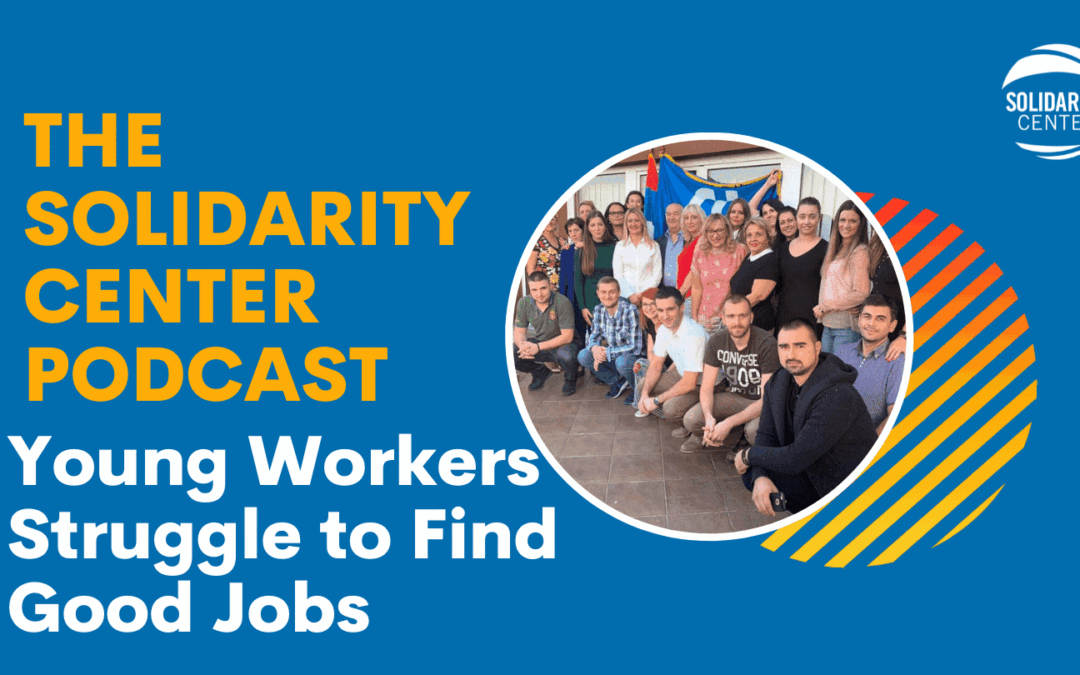Around the world, young people with few job options are forced to take whatever work they can find, no matter how low the pay or insecure the work. Many sign on with platform-based jobs to get by. Others leave their country with the hope of finding decent, secure work elsewhere, looking for a chance to fairly compete on a level playing field.
The latest Solidarity Center Podcast takes a look at what’s happening in Serbia, where one in four young people are not employed and not in school, and how unions there are meeting the challenges.
“The number one issue for all countries in the region and all young people is decent employment and the potential to find a job for each person in a way that is transparent and efficient and without corruption,” says Bojana Bijelovic Bosanac, a political scientist and expert adviser in the International Department at Confederation of Autonomous Trade Unions of Serbia (CATUS).
Bosanac tells Solidarity Center Executive Director and podcast host Shawna Bader-Blau about a union-lead survey among young workers in the Balkan region during the pandemic in which many reported being unpaid for their platform work as programmers, customer service reps, telecenter workers and delivery drivers, with nowhere to turn for support. Making the union their home is a key goal for CATUS and unions across Serbia.
“When we talk to young people, we want them to know that they are part of the union. They are the future of the union. We are inviting them always to approach, to come, to participate and to be leaders of the union.”
The Solidarity Podcast Available Wherever You Get Podcasts
Listen to this and all Solidarity Center episodes here or at iTunes, Spotify, Amazon, Stitcher, Castbox or wherever you subscribe to your podcasts.
The Solidarity Center Podcast, “Billions of Us, One Just Future,” highlights conversations with workers (and other smart people) worldwide shaping the workplace for the better.
Check out recent episodes of The Solidarity Center Podcast.
This podcast was made possible by the Ford Foundation and the generous support of the American people through the U.S. Agency for International Development (USAID) under Cooperative Agreement No.AID-OAA-L-16-00001 and the opinions expressed herein are those of the participant(s) and do not necessarily reflect the views of USAID/USG.

